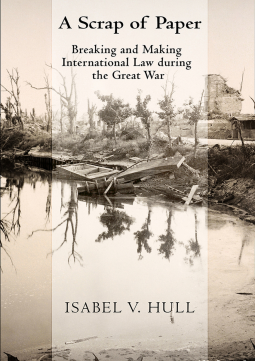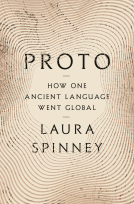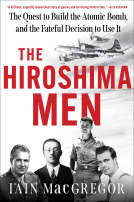
A Scrap of Paper
Breaking and Making International Law during the Great War
by Isabel V. Hull
This title was previously available on NetGalley and is now archived.
Send NetGalley books directly to your Kindle or Kindle app
1
To read on a Kindle or Kindle app, please add kindle@netgalley.com as an approved email address to receive files in your Amazon account. Click here for step-by-step instructions.
2
Also find your Kindle email address within your Amazon account, and enter it here.
Pub Date Apr 16 2014 | Archive Date Apr 29 2014
Description
A century after the outbreak of the Great War, we have forgotten the central role that international law and the dramatically different interpretations of it played in the conflict's origins and conduct. In A Scrap of Paper, Isabel V. Hull compares wartime decision-making in Germany, Great Britain, and France, weighing the impact of legal considerations in each. Throughout, she emphasizes the profound tension between international law and military necessity in time of war, and demonstrates how differences in state structures and legal traditions shaped the way in which each of the three belligerents fought the war. Hull focuses on seven cases in which each government’s response was shaped by its understanding of and respect for the law: Belgian neutrality, the land war in the west, the occupation of enemy territory, the blockade, unrestricted submarine warfare, the introduction of new weaponry (including poison gas and the zeppelin), and reprisals. Drawing on voluminous research in German, British, and French archives, the author reconstructs the debates over military decision making and clarifies the role played by law—where it constrained action, where it was manipulated to serve military need, where it was simply ignored, and how it developed in the crucible of combat. She concludes that Germany did not speak the same legal language as the two liberal democracies, with disastrous and far-reaching consequences. The first book on international law and the Great War published since 1920, A Scrap of Paper is a passionate defense of the role that the law must play to govern interstate relations in both peace and war.
Advance Praise
"Over the last decade, with wars in Iraq and Afghanistan, the laws of armed conflict have become matters of popular and public interest. Despite the growth of international humanitarian law, much of the law with which we still operate dates from the fifteen years just before the First World War and was applied within it. A Scrap of Paper is the first book to pay sustained attention to the subject of international law in the First World War since 1920. It is not only a timely book, it is an overdue one, and its impact on the study of the war will be important and game-changing. Isabel V. Hull has the linguistic range and scholarly tools to tackle the subject in the truly comparative fashion that its complexity demands."—Sir Hew Strachan, All Souls College, University of Oxford, author of The First World War: To Arms
"Isabel V. Hull's passionate narrative of the role of international law in the decision-making processes in Berlin and London during the First World War opens a strikingly original perspective on the consciousness of the wartime actors. This was a war waged also by legal arguments. In the end, the inability and unwillingness of Imperial Germany to defend its case in legal terms crucially undermined its war effort. This is not only superb history. This is also the most powerful defense of the role of law in international crisis that I have read, and as such of obvious contemporary relevance."—Martti Koskenniemi, Academy Professor, University of Helsinki, author of The Gentle
Civilizer of Nations: The Rise and Fall of International Law 1870–1960
Available Editions
| EDITION | Other Format |
| ISBN | 9780801452734 |
| PRICE | $45.00 (USD) |
Links
Featured Reviews
 David W, Reviewer
David W, Reviewer
This is the first book in nearly a century to examine the issues of the First World War in the light of International Law. It is a well written textbook. It is not really accessible to the general reader. The author makes a compelling case for why the more totalitarian Germans were unable to grasp the issues of international law in the same light as the liberal democracies of France and England.
Readers who liked this book also liked:
Rev. Dr. Suzanne Nicholson
Christian, Nonfiction (Adult), Religion & Spirituality


















